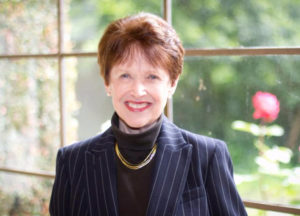 October 9, 2018 Geoffrey Holland of the?Millennium Alliance for Humanity and Biosphere (MAHB) interviewed Riane Eisler in “A Gender Equal Partnership for Planetary Stewardship”. One of the world?s leading systems scientists and cultural historians, Eisler shares her perspectives on social organization, partnership and how individual actions can add up to change.
October 9, 2018 Geoffrey Holland of the?Millennium Alliance for Humanity and Biosphere (MAHB) interviewed Riane Eisler in “A Gender Equal Partnership for Planetary Stewardship”. One of the world?s leading systems scientists and cultural historians, Eisler shares her perspectives on social organization, partnership and how individual actions can add up to change.
Geoffrey Holland: How did you get on the path that has evolved into your signature partnership cultural model for the world?
Riane Eisler: The passion that I have for this work, and I have a great deal of passion for it, is deeply rooted in my own life, because I was a child refugee along with my parents from the Nazis and the Holocaust. We escaped by a hair?s breadth. I was very fortunate that my parents were able to purchase an entry permit to Cuba, one of the few places in the world that, for money, let Jewish refugees in. ?I grew up in the industrial slums of Havana. It was quite traumatic, but it also led to the questions that have animated my research, questions like, does it have to be this way, does there have to be so much violence and cruelty, and, above all, what can we do to change the world for the better? ?These questions eventually led to my multidisciplinary, whole-systems analysis of human society.
The real struggle for our future is between the domination configuration and the partnership configuration worldwide. Once we understand this, we can build a solid foundation for a more sustainable, equitable, and caring partnership-oriented world.
One of my first jobs was with an offshoot of the RAND Corporation, working in what was then a new field, systems analysis. So, when I started to look at society, it was from a whole-systems perspective that differed from conventional analyses: I looked at the whole social system, its totality, including where we all live, in our family and other intimate relations. It is actually very strange that these critical aspects of social systems are not normally included in sociological analyzes, as we know from neuroscience that what children first observe, and experience impacts nothing less than how their brains develop. And of course, this profoundly affects how they feel, think and act, including how they relate to themselves and others.
Photo courtesy of Geoffrey Holland

![]()



Leave a Reply